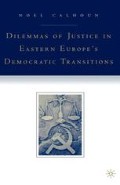Abstract
While murder and mayhem have plagued humankind through the centuries, the bloody twentieth century proved that the state with its unrivaled power to organize the use of force has a particularly horrifying potential for inflicting violence. Vladimir Lenin’s militaristic definition of the state— ” special bodies of armed men” — was sadly prophetic.1 Strong states like Hitler’s Germany and Stalin’s Russia pulled together an overwhelming array of military, bureaucratic, and police resources to organize murder on an unimaginable scale. Even weak states like Rwanda were able to compile lists of Tutsis to be massacred and order the machetes needed to carry out the gruesome genocide of 1994.2 The historian of the twentieth century can recite a long list of states’ crimes against their own citizens, ranging from the genocides in Europe, Cambodia, and Rwanda, to the “disappearance” of opposition activists in Latin America, to the brutal repression of dissidents throughout the Soviet bloc.
Access this chapter
Tax calculation will be finalised at checkout
Purchases are for personal use only
Preview
Unable to display preview. Download preview PDF.
Notes
Vladimir Lenin, The State and Revolution, in The Lenin Anthology, ed. Robert C. Tucker (New York: WW. Norton, 1975), 317.
Samantha Power, “Bystanders to Genocide,” The Atlantic Monthly, 288, 2 (September 2001): 84–108.
Herbert R. Lottman, The Purge (New York: William Morrow, 1986), 274.
Hans Woller, “Ausgebliebene Säuberung? Die Abrechnung mit dem Faschismus in Italien,” in Politische Säuberung in Europa; Die Abrechnung mit Faschismus und Kollaboration nach dem Zweiten Weltkrieg, ed. Klaus-Dietmar Henke and Hans Woller (Munich: Deutscher Taschenbuch Verlag, 1991), 182.
Peter Siani-Davies, “The Revolution After the Revolution,” chap. 1 in Post-Communist Romania: Coming to Terms with Transition, ed. Duncan Light and David Phinnemore (New York: Palgrave, 2001), 17–22.
Henry Rousso, The Vichy Syndrome: History and Memory in France since 1944, trans, by Arthur Goldhammer (Cambridge: Harvard University Press, 1991).
Tony Judt, “Epilogue,” in The Politics of Retribution in Europe, ed. Istvan Deak, Jan T. Gross, and Tony Judt (Princeton: Princeton University Press, 2000), 304.
Eric Foner, Reconstruction: Americas Unfinished Revolution, 1863–1877 (New York: Harper and Row, 1988), 603–604, 612.
Claus Offe, “Coming to Terms with Past Injustices: An Introduction to Legal Strategies Available in Post-Communist Societies,” Archives europeennes de sociologie, 23 (1992): 195–201.
George Sher, “Ancient Wrongs and Modern Rights,” Philosophy and Public Affairs 10, 1 (Winter 1981): 6.
Karl Jaspers, The Question of German Guilt, trans, by E.B. Ashton (New York: The Dial Press, 1947), 36, 73.
Geoffrey Robertson, Crimes Against Humanity; The Struggle for Global Justice, second edition (London: Penguin, 2002), 340– 341.
Bass similarly argues that liberal states are more likely to pursue a foreign policy that involves seeking justice for foreign victims of war crimes. It is logical that liberal democratic ideology would influence political elites’ choices about policies of truth and justice in both foreign and domestic affairs. See Gary Jonathan Bass, Stay the Hand of Vengeance: The Politics of War Crimes Tribunals (Princeton: Princeton University Press, 2002).
Copyright information
© 2004 Noel Calhoun
About this chapter
Cite this chapter
Calhoun, N. (2004). Introduction. In: Dilemmas of Justice in Eastern Europe’s Democratic Transitions. Palgrave Macmillan, New York. https://doi.org/10.1007/978-1-137-07453-9_1
Download citation
DOI: https://doi.org/10.1007/978-1-137-07453-9_1
Publisher Name: Palgrave Macmillan, New York
Print ISBN: 978-1-349-73219-7
Online ISBN: 978-1-137-07453-9
eBook Packages: Palgrave Political & Intern. Studies CollectionPolitical Science and International Studies (R0)

